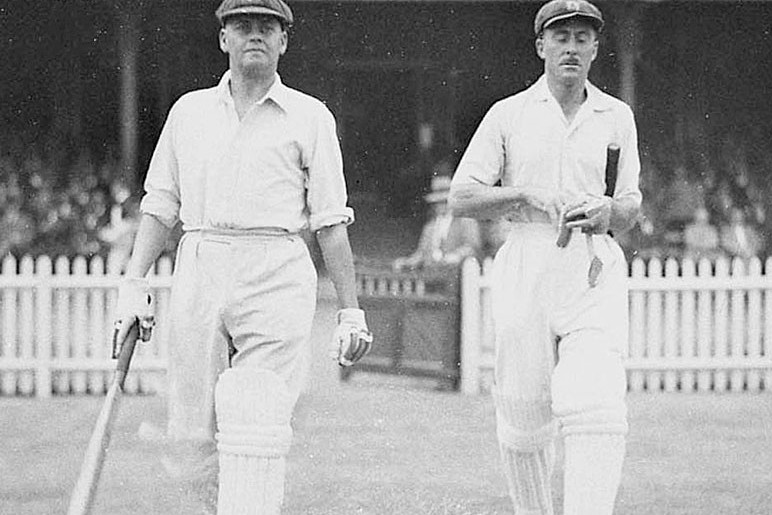General News
11 July, 2024
Bill Maldon Woodfull — “A reluctant hero”— By Brian Lennen
Bill was born in Maldon in 1897, the third of four sons to the Reverend Thomas Woodfull and his wife Lillian. He attended Melbourne High School when his father was shifted to Collingwood’s Methodist Mission, but his early cricket career in the...

Bill was born in Maldon in 1897, the third of four sons to the Reverend Thomas Woodfull and his wife Lillian.
He attended Melbourne High School when his father was shifted to Collingwood’s Methodist Mission, but his early cricket career in the city was unspectacular.
A bout of pneumatic fever severely impacted on Bill’s health and disallowed him from military service and playing cricket.
He graduated as a teacher and was posted to Maryborough High School.
Melville Nicol remembers him as an “influential” teacher, much loved by his students — “if he told you to behave, you did so”.
Playing cricket locally, Bill gained attention in 1920-21 by scoring 1335 runs at a prolific average of 225.83.
A teaching transfer in 1921 saw him move back to Melbourne.
In two matches against South Australia and New South Wales he scored 186 and 227.
Against Western Australia he scored his maiden first class century with 153.
Bill was posted to Williamstown High School while he completed an arts degree.
During the 1923-24 season (his first), he posted 598 runs at an average of 74.75, having perfected the art of the short single, which ticked over the scoreboard, infuriated the fielders and often led to overthrows.
As a result of consistent performances, he was selected for the 1926 Ashes tour, finishing the season with 890 runs at an average of 63.57.
Despite this, his selection was controversial, but regardless he went on to score 1809 runs on the tour, heading the first class averages with 58.35 and establishing an opening partnership with Bill Ponsford that amassed many scores in excess of 200.
Despite being reluctant to assume the captaincy, Woodfull accepted it for the 1930 Ashes tour, where they were labelled as the weakest squad to ever tour.
Coming to the fifth test (a timeless match), the teams were tied one-all, but Australia won the decider and regained the Ashes.
The 1932-33 Ashes series against Douglas Jardine’s English team was the most notorious cricket series of all time.
The English fast bowlers used the “bodyline” tactic of bowling short at the batsmen’s bodies, with close set fielders. Woodfull was struck below the heart along
with multiple body blows, but endured it without complaint and refused to retaliate. He is quoted as saying “there are two teams out there — one is playing cricket and the other is not”.
In 1934, Australia returned to England to regain the Ashes, with the side gifted with the talents of Bradman, Ponsford, O’Reilly and Grimmett.
After the match, Woodfull retired, having been the longest serving Australian captain.
He regarded his teaching career as more significant than cricket, and spent several years as headmaster of Box Hill High School, and also at Melbourne High School.
He was invested with an OBE for service to education, but declined one for cricket. At age 67, he collapsed and died while
playing golf in Tweed Heads. His family believes that “bodyline” damaged his health and contributed to his premature passing.
In recognition of Bill’s contribution to cricket, he was inducted into the Australian Hall of Fame in 2001. The city of Maldon honoured him by naming its oval after him.
It is interesting to note that the villainous English captain, Douglas Jardine, is a distant relative of the Burke family, well-known hoteliers in the district.